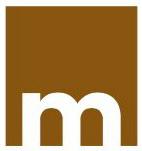
When it comes to medical negligence and personal injury claims, determining whether a healthcare professional has provided an appropriate standard of care is essential. The Bolem Test, a key legal principle in medico-legal cases, helps establish whether a medical professional has acted in line with accepted practices.
This test plays a significant role in evaluating clinical responsibility, ensuring that legal cases involving allegations of negligence are assessed fairly and objectively. By considering whether a responsible body of medical professionals would deem an action reasonable, the Bolem Test provides a structured framework for legal proceedings.
What is the Bolem Test?
The Bolem Test is used to assess whether a healthcare provider’s actions meet the expected standard of care by asking:
“Would a responsible body of medical professionals consider this treatment or decision reasonable?”
If the answer is yes, the practitioner is not considered negligent, even if another doctor might have taken a different approach. This principle recognises that medicine is not absolute—there can be multiple acceptable ways to deliver care.
However, courts also apply additional scrutiny, particularly under the Bolitho Test, which ensures that professional opinions are not only widely accepted but also logically sound and defensible. This helps prevent outdated or unscientific practices from being used as a defence in medico-legal cases.
Why is the Bolem Test Important in Medico-Legal Cases?
For legal professionals, insurers, and medical experts, the Bolem Test plays a crucial role in establishing clinical negligence or personal injury liability. Determining whether a healthcare provider adhered to professional standards requires an in-depth understanding of both medical best practices and legal principles.
It is particularly significant when assessing:
- Whether the medical professional’s actions were in line with accepted clinical practice.
- If an alternative treatment might have resulted in a different outcome.
- The long-term impact of the alleged negligence on the individual’s cognitive and physical well-being.
By offering a structured legal assessment, the test ensures accountability and fairness, balancing the rights of patients with the professional judgment of healthcare providers.
The Role of Expert Witnesses in Applying the Bolem Test
When the Bolem Test is used in legal proceedings, expert witnesses provide essential medical insight to help the court understand the complexities of clinical decision-making. Their role includes:
- Assessing whether a medical professional’s actions met the expected standard.
- Providing objective evaluations of clinical decisions and their consequences.
- Clarifying complex medical issues for judges, juries, and legal teams.
- Expert witness testimony bridges the gap between clinical practice and legal standards, ensuring that medico-legal decisions are based on credible, evidence-based medical insights.
Ethical Considerations and Patient Rights
While the Bolem Test provides a legal safeguard for medical professionals, it is equally crucial to ensure justice for patients. Ethical considerations include:
- Transparency in medical assessments and expert witness reports.
- Ensuring that medico-legal evaluations remain impartial and patient-focused.
- Balancing the protection of healthcare professionals with fair legal proceedings.
- By upholding high ethical and professional standards, medico-legal assessments contribute to ensuring fair, well-informed legal outcomes.
The Bolem Test remains a cornerstone of medico-legal decision-making, helping courts assess clinical responsibility and professional accountability. Whether in medical negligence, personal injury claims, or legal disputes, its application ensures that legal decisions are informed by objective medical evidence.
At Medico-Legal Healthcare, we provide expert witness services, independent assessments, and medico-legal evaluations to support legal professionals in building strong, evidence-based cases. Our team of specialists ensures that all assessments uphold the highest standards of professionalism and integrity, helping bridge the gap between medicine and law.


